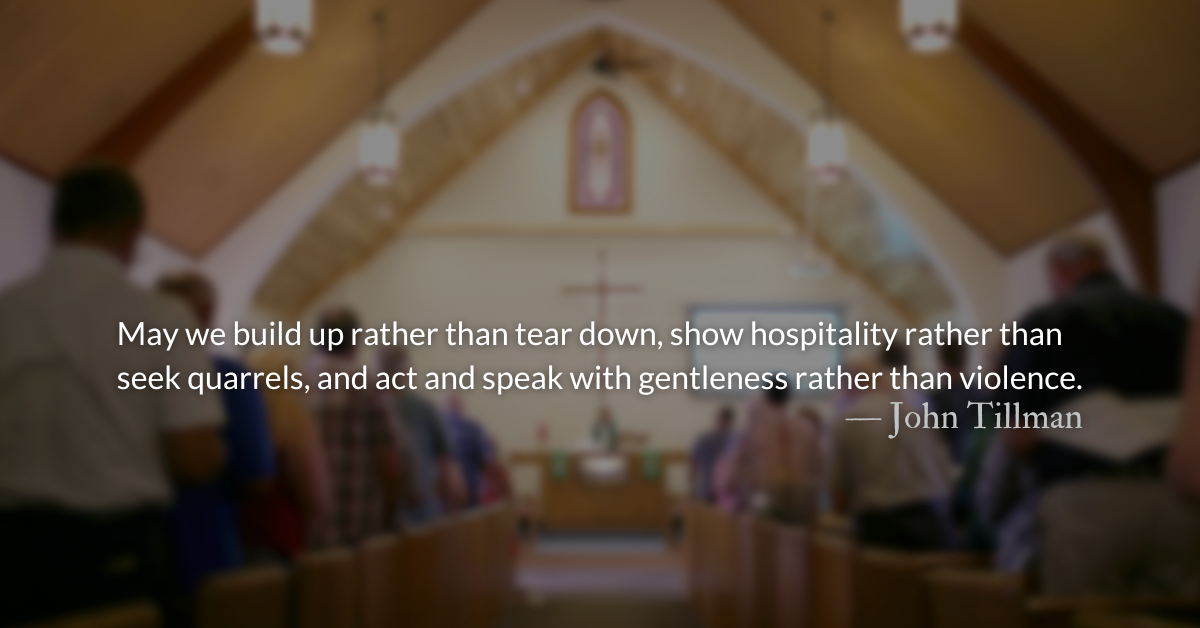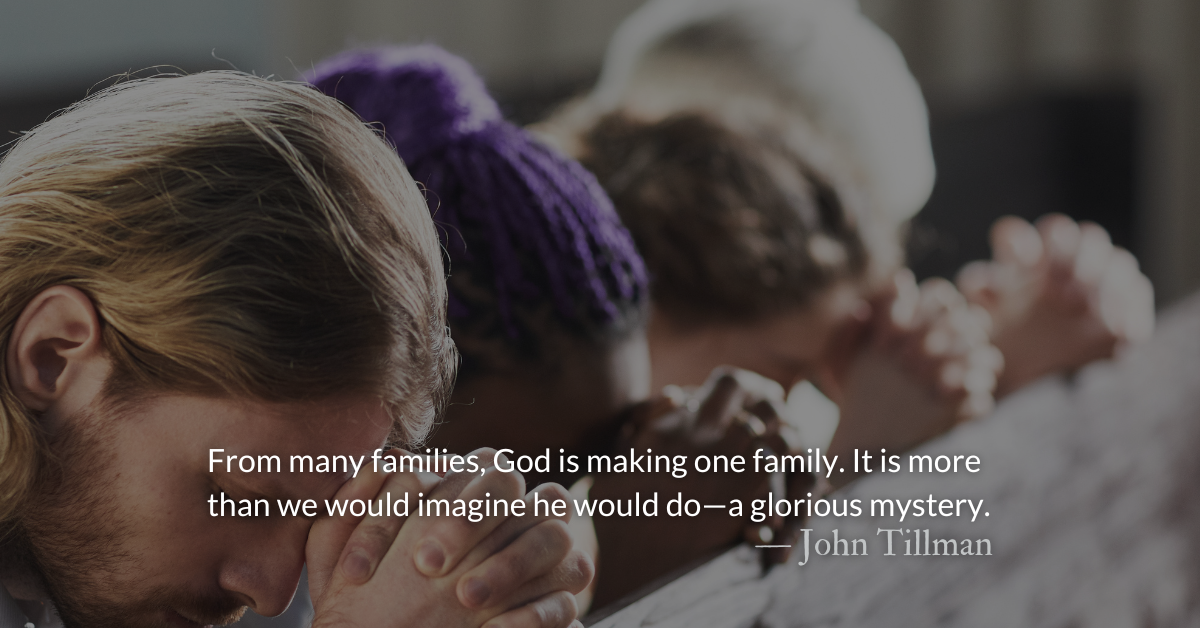Scripture Focus: Ephesians 1.17-21
17 I keep asking that the God of our Lord Jesus Christ, the glorious Father, may give you the Spirit of wisdom and revelation, so that you may know him better. 18 I pray that the eyes of your heart may be enlightened in order that you may know the hope to which he has called you, the riches of his glorious inheritance in his holy people, 19 and his incomparably great power for us who believe. That power is the same as the mighty strength 20 he exerted when he raised Christ from the dead and seated him at his right hand in the heavenly realms, 21 far above all rule and authority, power and dominion, and every name that is invoked, not only in the present age but also in the one to come.
Reflection: Ask and Keep Asking
By John Tillman
Writing Ephesians, Paul is “an old man” (Philemon 9). He is in chains. Execution and death lie ahead. Yet, in many of his letters from this time, Paul sounds enduringly hopeful.
Paul’s eyes are not set on his current circumstances or on the current state of the church. They are set on the heavenly realm. He speaks little of earthly sufferings, focusing attention on spiritual blessings.
By the sovereignty of Rome, Paul was predestined for trial, suffering, and, eventually, execution. But by the sovereignty of God, Paul was predestined to adoption to sonship through Jesus, to redemption and forgiveness, and to bringing Gentiles into the family of God. By the Holy Spirit’s prompting, Paul’s speaking, and the Ephesians’ hearing, they believed and were included in Christ as heirs to his promises.
There are different types of sovereignty at work in our lives. We live under the sovereignty of governments and employers. There are penalties and benefits predestined by their laws and policies. When we work according to our employment policies, we receive promised wages. Whether we believe in paying our taxes or not, if we don’t pay them, we are predestined for trouble.
By God’s sovereignty, not only the Ephesians but we are included in Christ by hearing and believing the gospel of salvation. (Ephesians 1.13) Like them, we who believe are marked, sealed, and predestined for the glory that is to come.
And like the Ephesians, we also have farther to go. Paul thanked God for their faith but prayed that through the Holy Spirit they would know God better.
Pray this prayer based on Paul’s:
Lord, help us to ask and keep asking that through the Holy Spirit you would grant us greater wisdom, greater enlightenment, greater hope, and greater power.
In this world that seeks to do us harm, these are our daily bread. We cannot survive without them.
Whatever the world has destined for us, Lord, work out everything in conformity with the purpose of your will.
Your Holy Spirit guarantees that we are your possession. We do not belong to the world.
Through whatever suffering, whether loss of life or comfort, let no harsh treatment make our speech harsh or our hearts hard.
Let your resurrection power not only resurrect our bodies should we die, but resurrect our compassion, our love, our goodness, our humility, and our generosity while we live.
Divine Hours Prayer: The Refrain for the Morning Lessons
Help me, O Lord my God; save me for your mercy’s sake. — Psalm 109.25
– From The Divine Hours: Prayers for Summertime by Phyllis Tickle.
Today’s Readings
Joshua 9 (Listen 3:46)
Ephesians 1 (Listen 3:10)
Today’s Readings
Joshua 10 (Listen 7:23) Ephesians 2 (Listen 3:04)
Joshua 11 (Listen 3:52) Ephesians 3 (Listen 2:41)
Read more about The Consequence of Carelessness
There are times when the monotony of life creates an apathy toward caution.
Read The Bible With Us
There is joy to be found in the scriptures. Read the Bible with us at a sustainable, two-year pace.











